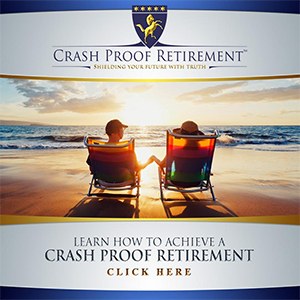 To Phil Cannella,
To Phil Cannella,
scams that rip you off in the name of charity are a special class of atrocity. According to the National Center for Charitable Statistics, over 1.5 million non-profit organizations exist in the United States and individual donors gave $211.77 billion in 2010. Charitable donations are a great way to give to those in need, but Phil Cannella warns that not all charitable organizations are legitimate. The Federal Trade Commission (FTC) advises donors not to donate to an inefficient organization, or even worse, a scam artist.
According to Charity Watch, a charity watchdog, a highly efficient charity will spend 75% or more on their causes; satisfactory charities will spend about 60% on their causes. Recently, this issue came to light during the “Kony 2012” campaign, when it was found that its associated charity, Invisible Children, was spending only around 37% of its money on operations relating to its cause. Other watchdog organizations, like Charity Navigator, The Better Business Bureau and the FTC, also have criteria differentiating between efficient and scam charities.
Below are the FTC’s tips on how to avoid scam charities:
- Avoid charities that spring up overnight, especially in connection with current events or natural disasters. These are usually scams.
- Ask the charity for literature regarding its business practices. Legitimate charities will be willing to provide information about themselves, including their mission, how your donation will be used, and proof that your contribution is tax-deductible.
- Contact the office that regulates charitable organizations in your state. A legitimate charity will be registered with them. To find your state office, visit the National Association of State Charity Officials at http://www.nasconet.org/documents/u-s-charity-offices/.
- Don’t be afraid to ask who will be getting your money. If the charity will not provide this information, it is probably a scam.
- If solicited by someone claiming to be affiliated with a charity, call the charity they claim to represent. Find out if the organization is aware of any solicitation and if it has authorized that person to use its name. Some scammers may use the name of a real charity without permission to collect money for themselves.
- Check with local recipients. If a charity claims to donate to an organization in your area, call them to verify that it received money from that charity, otherwise it could be a scam.
- Watch out for charities with similar names to larger charitable organizations. Some scammers use this tactic to trick donors. Make sure the charity soliciting you is not misrepresenting itself.
- Refuse high-pressure appeals. Most legitimate charities will not try to make you donate on the spot.
- Do not give cash donations. Write a check made payable to the charity, not the solicitor. If donating online, ensure the site is secure (denoted by an “https:” address or a lock symbol in your browser’s status bar) to avoid a scam.
Don’t let these tips deter you from making charitable contributions. For every scammer out there, there is a charity dedicated to helping people. Phil Cannella regularly makes donations to the Children’s Hospital of Philadelphia, and encourages others to donate to the charity of their choice as well. “Just make sure you are smart about where you donate and make sure that your money, and the people it will be helping, are in good hands,” says Phil Cannella.
For more information about fraudulent charities from the FTC, visit http://www.ftc.gov/bcp/edu/microsites/charityfraud/. The Better Business Bureau’s Wise Giving Alliance rates charities individually and information can be found at http://www.bbb.org/us/charity/. The American Institute of Philanthropy rates over 550 individual charities in its Charity Rating Guide, claiming to screen charities more rigorously than other organizations. A copy of the Guide can be obtained at http://www.charitywatch.org/ for a cost of $3 shipping and handling. Charity Navigator can be found at http://www.charitynavigator.org/.
Before giving your money to a charity, make sure you investigate it thoroughly using all of these sources. Educating yourself is the only way to ensure your money is going to the people who need it most. According to Phil Cannella, scams are on the rise. In these tough economic times, don’t let yourself get taken!
FOR MORE INFORMATION FROM PHIL CANNELLA, TUNE IN TO THE CPR SHOW, EVERY SATURDAY 11AM-1PM. LISTEN LIVE





